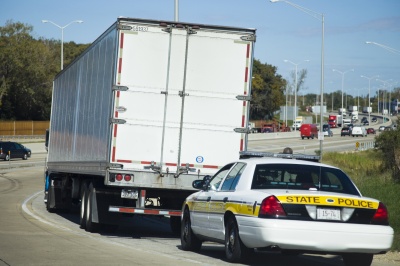CDL drivers face Jan. 30 deadline on Medical Certification Status
Commercial truck drivers face a Jan. 30, 2014 deadline to self-certify their operating status and provide NRCME medical examiner certificates to their state driver licensing agencies, according to the Federal Motor Carrier Administration (FMCSA).
FMCSA began requiring CDL holders to identify if they conduct intrastate or interstate commerce and if they hold non-excepted or excepted status in 2012 and the two-year window for compliance is coming to an end.
Most truckers are classified under non-excepted interstate commerce and must furnish a current medical examiner’s certificate to state agencies.
Those who did not need a license renewal, upgrade or transfer during the two-year implementation process still must self-certify and provide the certificate, often called a DOT card, by the 2014 deadline.
State agencies who do not receive self-certification, medical certificates and any required variance from CDL-holders by the compliance deadline must notify drivers that they are no longer medically certified in non-excepted interstate commerce. State officials will remove all CDL privileges from their licenses.
The 2008 FMCSA rule required CDL holders subject to federal physical qualification to provide a medical certificate to state agencies. After several states reported they could not meet the original 2012 deadline, the FMCSA extended the paper copy requirement. Interstate CDL holders must keep paper copies of the certificate with them and carriers file a paper copy until Jan. 30, 2014.
Following the 2014 deadline, the medical paper certificates will be valid the first 15 days after issuance. After the 15-day limit, the certificate will be recorded on CDL holders driving records and will be considered the valid medical certification.
CDL holders must determine what type of commerce they operate in. They must certify to their state driver license agency which of the following applies to them:
- Interstate non-excepted: You are an Interstate non-excepted driver and must meet the Federal DOT medical card requirements (e.g. – you are “not excepted”).
- Interstate excepted: You are an Interstate excepted driver and do not have to meet the Federal DOT medical card requirements.
- Intrastate non-excepted: You are an Intrastate non-excepted driver and are required to meet the medical requirements for your State.
- Intrastate excepted: You are an Intrastate excepted driver and do not have to meet the medical requirements for your State.
If a trucker is subject to the DOT medical card requirements, they are required to provide a copy of each new DOT medical card to their state driver license agency prior to the expiration of the current DOT medical card.
The new medical card requirements come on the heels of changes to the Hours-of-Service (HOS) rules that went into effect on July 1, 2013.
The changes to the HOS rules include provisions which limit use of the 34-hour restart and require a rest break before driving after 8 hours on-duty.
A recent study by the American Transportation Research Institute (ATRI) analyzed the operational and economic impacts of the new HOS rules.
Among the operational and economic impacts identified by ATRI are:
- More than 80 percent of motor carriers surveyed have experienced a productivity loss since the new rules went into effect, with nearly half stating that they require more drivers to haul the same amount of freight.
- Among commercial drivers surveyed by ATRI, 82.5 percent indicated that the new HOS rules have had a negative impact on their quality of life, with more than 66 percent indicating increased levels of fatigue.
- Commercial drivers are forced to drive in more congested time periods, although the FMCSA Regulatory Impact Analysis did not address increased safety risks with truck traffic diversion to peak hour traffic.
- The majority of drivers (67 percent) report decreases in pay since the rules took effect.
- The impacts on driver wages for all over-the-road drivers total $1.6 billion to $3.9 billion in annualized loss.
ATRI’s analysis is based on industry survey data of over 2,300 commercial drivers and 400 motor carriers as well a detailed analysis of logbook data representing 40,000 plus commercial drivers.
“We anticipated significant impacts on our operations and across the entire supply chain from the new rules and our experience since July 1st is bearing that out,” said Kevin Burch, president of Jet Express. “ATRI’s analysis clearly documents the productivity impacts and real financial costs being borne by carriers and drivers. It’s only a matter of time before these impacts ripple throughout the nation’s economy.”
Medical providers can obtain NRCME Training and certification at this link https://nrcmetrainingonline.com/.






